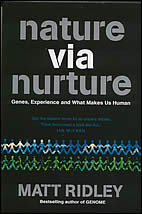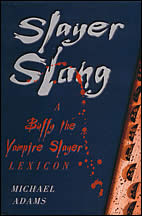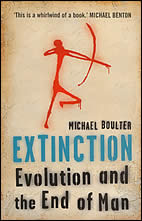 Habla de la influencia de la biología y el ambiente en la configuración de los seres vivos. Parece que pinta una imagen muy compleja, llena de interacciones e influencias mutuas:
Habla de la influencia de la biología y el ambiente en la configuración de los seres vivos. Parece que pinta una imagen muy compleja, llena de interacciones e influencias mutuas:
What makes us who we are?
In February 2001 it was announced that the genome contains not 100,000 genes as originally expected but only 30,000. This startling revision led some scientists to conclude that there are simply not enough human genes to account for all the different ways people behave: we must be made by nurture, not nature. Yet again biology was to be stretched on the Procrustean bed of the nature-nurture debate.
Aclaimed science writer Matt Ridley argues that the emerging truth is far more interesting than this myth. Nurture depends on genes, too, and genes need nurture. Genes not only predetermine the broad structure of the brain, they also absorb formative experiences, react to social cues and even run memory. They are consequences as well as causes of the will.
Published 50 years after the discovery of the double helix of DNA, Nature via Nurture chronicles a revolution in our understanding of genes. Ridley recounts the 100 years’ war between the partisans of nature and nurture to explain how this paradoxical creature, the human being, can be simultaneously free-willed and motivated by instinct and culture. Nature via Nurture is an enthralling, up-to-the-minute account of how genes build brains to absorb experience.
Michael Ruse lo reseña en The New York Times:
I have terrific admiration for professional science writers like Matt Ridley and Robert Wright and Roger Lewin. They write very well and they bring to us fascinating and important information from the world of science, a world of which few of us have firsthand experience or detailed knowledge, despite its importance to us in everything we now do. Unlike a professor, such as myself, who gets supplied with a new batch of students every year, science writers have to go out and find their own topics, research them, write them up and sell their wares.
Unfortunately, this can backfire or become a little stale at times. Every year or two you need to find a new subject. Sometimes there is something good just waiting to be treated. Ridley’s last book, »Genome,» took on the Human Genome Project, as he cleverly discussed a gene from each of the 23 human chromosome pairs. Yet sometimes you just seem to be stuck with a topic that does not truly catch fire. I have a bit of a feeling this way about »Nature via Nurture.» The parts are really good. Not only are there the discussions of schizophrenia and imprinting, but others about child development and the controversy over the relative effects of parents and peers on adult attitudes, about identical twins and the difficulties (and triumphs) of breaking apart home influences and the twins’ shared biology, about the effects on adults of the wartime starvation of their mothers when pregnant, and much more.
But somehow, as a whole, for me the book never really excites. During the controversies about human sociobiology and the importance of human genetics 20 or 30 years ago, »Nature via Nurture» could have been just what one wanted. Perhaps if one moves to Cambridge, Mass., it will still seem vital and needed. My feeling is that, fine though the parts may be, the message of the whole is now a bit old hat. Read it if you want a good overview, but let us hope that next time around Ridley comes up with a more vibrant topic.
Me sorprende el último comentario. Para Ruse y sus amigos será evidente que la cuestión es compleja y estamos hablando de un curioso entramado de genes y ambiente. Sin embargo, yo conozco mucha gente empeñada -normalmente por razones políticas- en negar cualquier influencia a los genes. Por tanto, no me parece tan trivial o carente de emoción.
Por cierto, he comprado el libro porque el anterior que leí de Ridley, Genoma, me encantó.
—–
 Uno de las grandes maravillas de Buffy cazavampiros es su uso del lenguaje -que se pierde, por desgracia en la traducción. Eso, cuando los traductores no deciden cambiar el sentido de lo que se dice-: siempre irónico, jazzístico, moderno y sofisticado. Uno de los grandes triunfos de los guionistas es que las frases pronunciadas por los personajes suenan a improvisadas. También el lenguaje empleado está lleno de inventiva: creando palabras nuevas o directamente transformando el sentido de palabras ya existentes.
Uno de las grandes maravillas de Buffy cazavampiros es su uso del lenguaje -que se pierde, por desgracia en la traducción. Eso, cuando los traductores no deciden cambiar el sentido de lo que se dice-: siempre irónico, jazzístico, moderno y sofisticado. Uno de los grandes triunfos de los guionistas es que las frases pronunciadas por los personajes suenan a improvisadas. También el lenguaje empleado está lleno de inventiva: creando palabras nuevas o directamente transformando el sentido de palabras ya existentes. Básicamente, se trata de uno de esos libros son premisa divertida. La especie humana ha tenido gran influencia en el planeta, pero aún así sigue siendo una especie animal y podría extinguirse como otra cualquiera. Lo interesante es comprobar si tal cosa es posible o no:
Básicamente, se trata de uno de esos libros son premisa divertida. La especie humana ha tenido gran influencia en el planeta, pero aún así sigue siendo una especie animal y podría extinguirse como otra cualquiera. Lo interesante es comprobar si tal cosa es posible o no: Habla de la influencia de la biología y el ambiente en la configuración de los seres vivos. Parece que pinta una imagen muy compleja, llena de interacciones e influencias mutuas:
Habla de la influencia de la biología y el ambiente en la configuración de los seres vivos. Parece que pinta una imagen muy compleja, llena de interacciones e influencias mutuas: